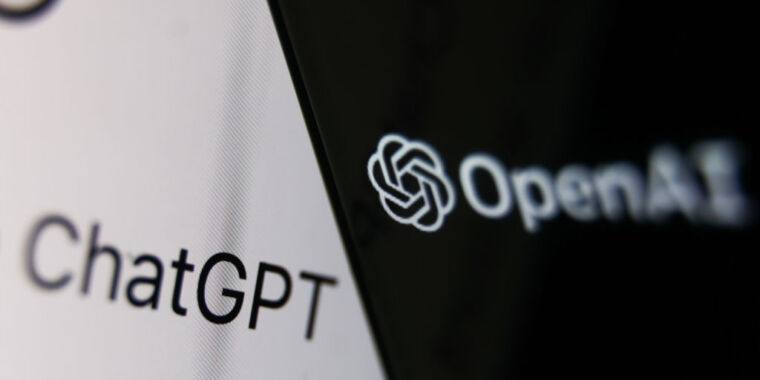ChatGPT has investors drooling, but can it bring home the bacon?

AI hype — ChatGPT has investors drooling, but can it bring home the bacon? As Microsoft eyes $10B investment, it’s unclear what products can be built on the tech.
Will Knight, wired.com – Jan 15, 2023 12:01 pm UTC EnlargeGetty Images reader comments with 0 posters participating Share this story Share on Facebook Share on Twitter Share on Reddit
When ChatGPTthe ingenious, garrulous, and occasionally unhinged chatbot from OpenAIwas asked this week how much the company behind it is worth, its responses included: It is likely that its worth is in the hundreds of millions of dollars, if not more.
Microsoft, which is rumored to be weighing a $10 billion investment in OpenAI on top of an earlier $1 billion commitment, is betting that the company is worth a lot moredespite the fact neither ChatGPT nor other AI models made by OpenAI are yet raking in huge amounts of cash. OpenAI has built several impressive and attention-grabbing demos and powers a popular autocomplete function for coders offered by Microsofts GitHub. But despite the hype swirling around its technology, the startup hasnt created a breakout, highly lucrative product or business.
We don’t really know what ChatGPT is going to be great at, says James Cham, a partner at Bloomberg Beta, an investment firm. But while the bots path to riches may not be clear, Cham shares the feeling of many VCs and entrepreneurs that the technology behind the bot will pay out in a big way. OpenAIs technology is at the heart of a swell of interest in so-called generative AI, a term encompassing algorithms that can generate text, images, or other data. Advertisement
Cham compares the current situation to the early days of the Internet, when some obscure but evocative demos turned out to precede a sea change in the workings of software, tech companies, and wider society. Weve had decades of great AI demos, but this is the first one where you give it to someone and they are really excited about the possibilities, Cham says of ChatGPT.
OpenAIs chatbot took the Internet by storm when it was released in December 2022, demonstrating an uncanny ability to answer questions and perform tricks like crafting mostly coherent essays, producing working computer code, and musing on the meaning of life. It is powered by GPT-3, a text-generation algorithm developed by OpenAI, that has been fed huge quantities of text slurped from the web and other sources and then given additional training on how to answer questions.
Some developers were so inspired by ChatGPT that they quickly used it to create apps, such as a spreadsheet assistant capable of performing complex calculations in response to a simple typed request.
But because of how ChatGPT worksby finding statistical patterns in text rather than connecting words to meaningit will also often fabricate facts and figures, misunderstand questions, and exhibit biases found in its training data. This is likely to complicate efforts to use the technology widely, by, for example, mixing misleading or biased information into search results.
One reason for tech industry excitement around ChatGPT, fed by its parlor tricks, is the suggestion it might disrupt the long-standing dominance of Google and other tech giants, by allowing small companies to outcompete much larger competitors. One popular theory is that the bot could transform web search. Page: 1 2 Next → reader comments with 0 posters participating Share this story Share on Facebook Share on Twitter Share on Reddit Advertisement Channel Ars Technica ← Previous story Related Stories Today on Ars


